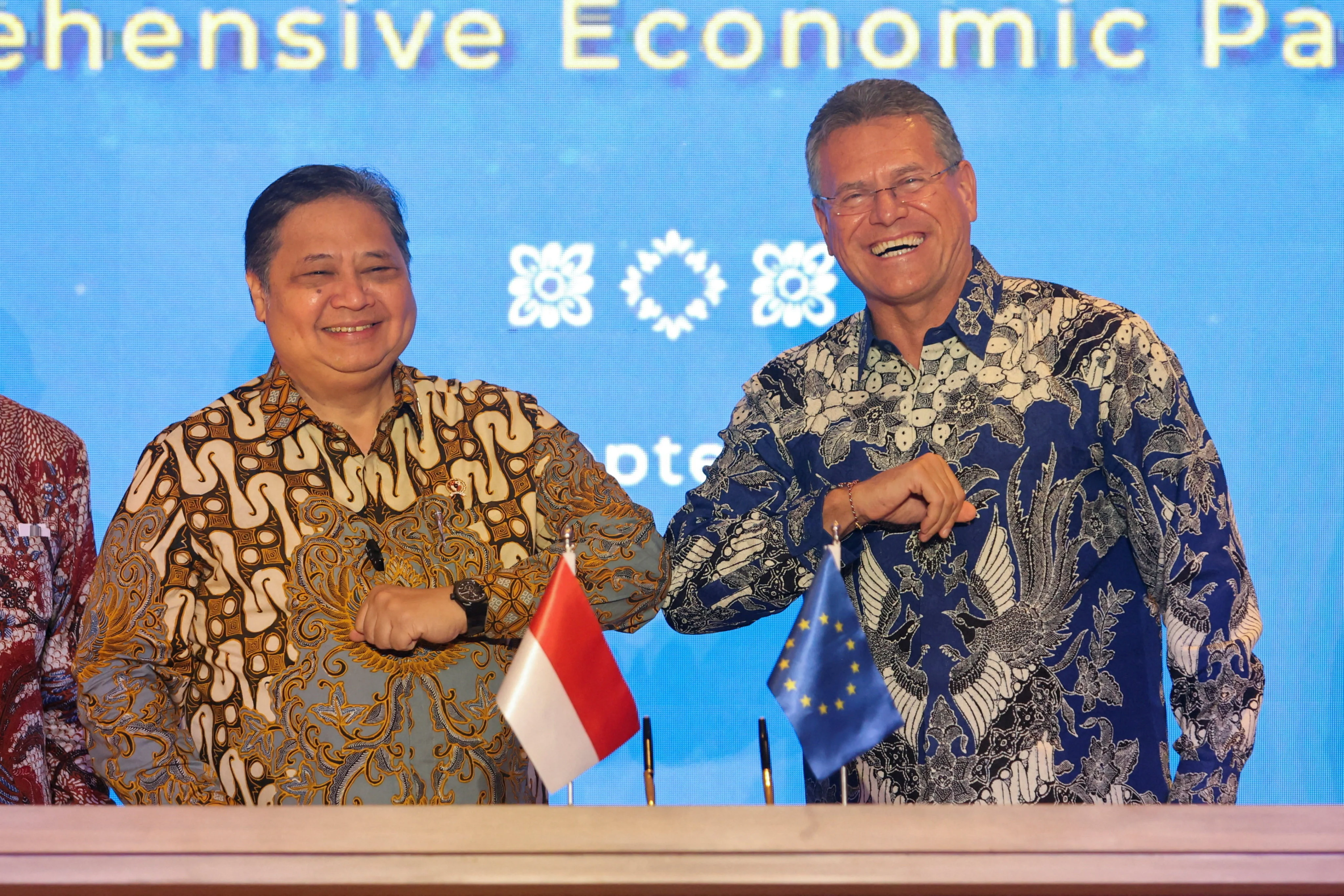By Resty Woro Yuniar
Copyright scmp

Barely had the ink dried on a long-awaited trade pact between the European Union and Indonesia before Brussels proposed another one-year delay to its long-awaited anti-deforestation law.
The move drew fierce criticism from environmental groups, who see the move as a capitulation to global trade interests.
On September 23, the Indonesia-European Union Comprehensive Economic Partnership Agreement (IEU-CEPA), set to take effect in 2027, was concluded after nearly a decade of negotiation.
The agreement, praised as “historic” by both sides, will eliminate tariffs on more than 98 per cent of goods traded between the two economies and nearly 99 per cent of the value of imports, according to Indonesia’s coordinating minister of economic affairs, Airlangga Hartarto.
Indonesian exports – ranging from palm oil and textiles to seafood and critical minerals – are expected to gain unprecedented access to EU markets, potentially boosting Indonesia’s gross domestic product by as much as US$2.8 billion annually.
“This also provides us with a stable and predictable supply of critical raw materials, essential for Europe’s clean tech and steel industry,” European Commission President Ursula von der Leyen said in a statement, emphasising the deal’s broader significance.
Meanwhile, EU exporters are projected to save some €600 million (US$704 million) a year in duties on goods entering Indonesia.
Yet even as officials celebrated the economic breakthrough, controversy erupted over the European Commission’s decision – announced mere hours after the signing – to propose a further year’s delay to the European Union Deforestation Regulation (EUDR).
The law, originally scheduled to take effect in December and already postponed once, would bar commodities linked to deforestation after the end of 2020 from entering the EU market. The commission has attributed the delay to technical and bureaucratic challenges.
“We still cannot believe that we can really get this without disruption for our businesses,” Jessika Roswall, the EU’s environment commissioner, told reporters on September 23. “We need the time to combat the risk with the load of information in the IT system.”
‘Startling coincidence’
Environmentalists swiftly accused Brussels of yielding to pressure from industry groups and key trade partners, including Indonesia, which has long branded EU sustainability standards as discriminatory against its palm oil sector.
“It’s a startling coincidence that just after the European Commission signs trade deals with the US and Indonesia, it moves to delay the EUDR once again, conveniently blaming IT problems,” said Isabel Fernandez, senior consultant at green group Mighty Earth, in a statement last week.
“Having proposed a world-class piece of legislation to combat deforestation, the EC has now decided it would rather do trade deals with Trump’s US and Indonesia, which is currently driving the world’s biggest deforestation project in Papua.”
The EU’s anti-deforestation stance was a persistent stumbling block throughout the years-long IEU-CEPA negotiations. Indonesia, whose palm oil industry has been blamed for massive rainforest loss, repeatedly said the bloc’s rules unfairly targeted its exports.
Rere Christianto, a campaign manager at the Indonesian environmental group Walhi, said the juxtaposition of zero tariffs for palm oil and the postponement of the EUDR showed “the inconsistency of environmental protection efforts in Indonesia”.
“If the EUDR is postponed, but the rules regarding tariff exemptions are implemented, then the free trade mechanism will provide as much space as possible for products originating from regions that destroy the environment in Indonesia,” he told This Week in Asia.
Christianto also voiced concern that the new agreement might open the door to increased exports of raw minerals, especially nickel, fuelling further environmental harm in Indonesia’s resource-rich regions.
“Walhi data shows that at least 1 million hectares of nickel mining [concessions] issued in South Sulawesi, Central Sulawesi, Southeast Sulawesi, North Maluku and Papua directly border the [protected] forest area,” he said.
Traceability issues
The proposed delay to EUDR has also split opinion within Indonesia’s palm oil industry. Mansuetus Darto, of the Palm Oil Farmers Union, described the move as “a major setback” for the EU’s climate and energy transition commitments.
“I see the palm oil industry as open to the regulations proposed in the EUDR, such as due diligence and traceability,” he said.
“Farmers need to provide coordinates showing that they are not engaging in deforestation. Compliance with the EUDR verification system is simple and cheap.”
Farmers had been paying up to US$100 to meet the EU’s Roundtable on Sustainable Palm Oil standard, Mansuetus said, warning that delaying the law would only “postpone concrete actions for traceability at the government and palm oil grower levels”.
By contrast, the Indonesian Palm Oil Entrepreneurs Association (Gapki) has welcomed the pause. Chairman Eddy Martono told local media that the delay offered more room for negotiations with the EU to secure temporary exemptions for smallholders, who often lack the documentation and GPS-mapped land required by the EUDR.
In a recent submission to the European Commission, Gapki described the law’s traceability demands as “an immense challenge for rural farmers … [who] have not formally registered their land plots or mapped GPS coordinates”.
Whether the EU can reconcile its climate commitments with its trade agenda – and whether Indonesia can balance growth with environmental stewardship – remains a test for both.



